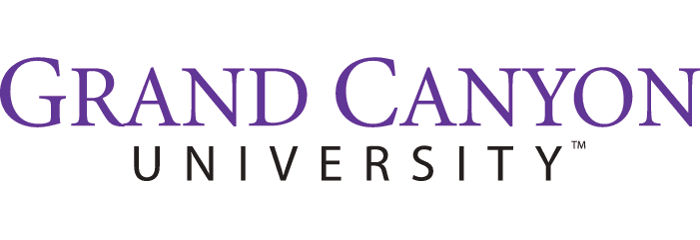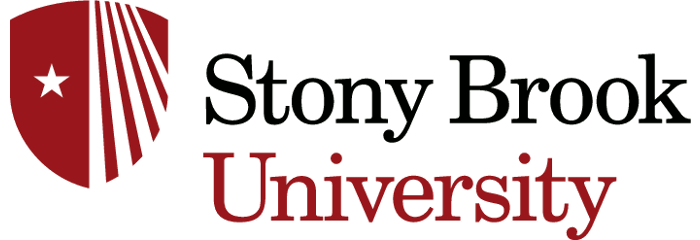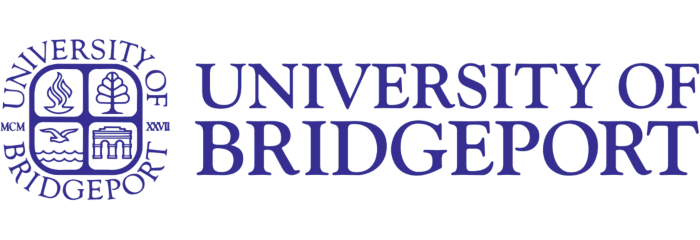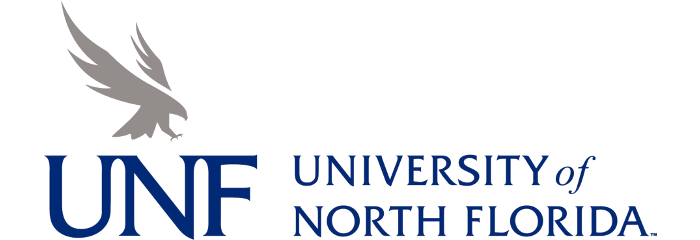2022 Best Online Master's in Nutrition Programs
ON THIS PAGE
Courses Cost Worth It? Careers Accreditation FAQs Expert InsightStudents interested in advancing their careers should explore the 10 colleges below offering the best online master’s in nutrition degrees based on alumni salary. An advanced degree in the field may allow nutritionists and dieticians to earn an approximate salary of $93,640 — the highest 10% among earners in this field.
While earning a master’s in nutrition, individuals learn to perform research, affect policy, and develop their health practices in order to improve the lives of patients. Furthermore, an online master's in nutrition provides in-depth knowledge about the science of food, especially how diet can enhance both individual and societal wellness.
View our methodology for more details about rankings or learn more about OnlineU.
Learn more about how we make money. ">ADVERTISEMENT
Online Nutrition Master's Degrees You May Be Interested In

Arizona State University
Annual Tuition: $6,592 - $27,048
2 Programs (view all)

Grand Canyon University

Liberty University
Annual Tuition: $8,475
4 Programs (view all)
2022 Best Online Master's in Nutrition Programs
| Rank | School | Salary Score | Median Starting Salary |
|---|---|---|---|
| Arizona State University | $59,712 | ||
| Stony Brook University | 99 | $58,950 | |
| Utah State University | 98 | $56,726 | |
| University of Rhode Island | 98 | $56,247 | |
| Indiana University of Pennsylvania - Main Campus | 97 | $54,373 | |
| University of North Carolina at Chapel Hill | 95 | $51,673 | |
| SUNY Oneonta | 95 | $51,203 | |
| Framingham State University | 95 | $50,469 | |
| University of Bridgeport | 94 | $50,061 | |
| University of North Florida | 94 | $49,715 |
2022 Online Colleges Offering Master's Degrees
Ranking Details
#1 Arizona State University
- Salary Score: 100
- Median Starting Salary: $59,712
- Locations: Tempe (AZ) (and 4 others)
- Accreditation: HLC
Arizona State University (ASU) is a large, public institution. It offers an online Master of Science in Medical Nutrition and Master of Science in Nutritional Science - Dietetics, each requiring 30 credit hours. The curricula cover nutritional sciences and research methods, and a couple of core classes for these programs include Ethics and Policy of American Diets and Medical Nutrition in the Care and Prevention of Disease. One of the program requirements is a practicum, or “Applied Project.” Graduates may pursue careers as clinical managers, dietitians, and foodservice directors.
At ASU, students use Blackboard to access their coursework, which is fully online. Depending on their personal needs, students can choose between a full- or part-time schedule, but at a full-time pace, students finish in one to two years. Also, online students have access to counselors, tutors, and technical resources.
#2 Stony Brook University
- Salary Score: 99
- Median Starting Salary: $58,950
- Locations: Stony Brook (NY)
- Accreditation: MSCHE
Stony Brook University (SBU) is a large, public institution that offers an online Master of Science in Nutrition requiring 36 credit hours. (It also offers a fully online Advanced Certificate in Nutrition that requires 15 additional credit hours.) The master’s program curriculum provides students with a more nuanced understanding of nutrition therapy and research. The two core concentrations are (1) Advanced Nutrition Therapy & Critical Care and (2) Integrative Nutrition Therapy. To graduate, students must complete all courses with a passing grade, which typically takes two years with a full-time schedule.
At SBU, students use Blackboard to access their coursework, which is entirely online. Students also have the flexibility to complete the program with either a full- or part-time schedule.
#3 Utah State University
- Salary Score: 98
- Median Starting Salary: $56,726
- Locations: Logan (UT)
- Accreditation: NWCCU
Utah State University (USU) is a large, public institution that offers an online Master of Dietetics Administration that requires 18 credit hours. The curriculum delves into management and nutrition program administration at a deeper level. Some core classes for this master's program include Dietetics Leadership and Current Issues in Dietetics. Overall, it can take students one year (three semesters) to complete all program requirements, which include a practicum project or thesis. Alumni often become dietitians or health educators.
USU students use Canvas to access their coursework, which is entirely online and synchronous. Additionally, online students have access to the university library, test proctoring, and tutoring services.
#4 University of Rhode Island
- Salary Score: 98
- Median Starting Salary: $56,247
- Locations: Kingston (RI)
- Accreditation: NECHE
The University of Rhode Island (URI) is a medium-sized, public institution that offers an online Master of Science in Dietetics requiring 37 credit hours. The curriculum aims to provide students with a broad understanding of research methods and clinical nutrition. There are two tracks for master's students: (1) the Integrated Experiential Track, which prepares students to become MS-RDNs, and (2) the Individualized Experiential Track, which helps students complete two projects to advance their careers. To graduate, students must complete all courses with a passing grade, which can take one year at a full-time pace. Program alumni may search for jobs in industries that range from sports health to public relations in healthcare.
At URI, students use Brightspace to access their learning materials, which are all online. An additional benefit for online students is that they can access academic advising and counseling through the university.
#5 Indiana University of Pennsylvania - Main Campus
- Salary Score: 97
- Median Starting Salary: $54,373
- Locations: Indiana (PA) (and 2 others)
- Accreditation: MSCHE
Indiana University of Pennsylvania - Main Campus (IUP) is a medium-sized, public institution that offers an online Master of Science in Food and Nutrition requiring 36 credit hours. While the curriculum generally focuses on human and applied nutrition, this advanced online program offers either a research or education concentration as well. To graduate, students must complete all program requirements, which can take one to two years at a full-time pace. For research students, this includes an optional thesis option. Program graduates may go on to explore careers at educational institutions, public health centers, and government agencies.
At IUP, students use both Moogle and D2L to access their learning materials, which are entirely online. Online students may also access the university library and student resource centers.
#6 University of North Carolina at Chapel Hill
- Salary Score: 95
- Median Starting Salary: $51,673
- Locations: Chapel Hill (NC)
- Accreditation: SACS COC
The University of North Carolina at Chapel Hill (UNC - Chapel Hill) is a large, public institution that offers an online Master of Public Health Nutrition and Dietetics and a Master of Public Health with a concentration in Nutrition. The curricula provide students with a greater understanding of public health and clinical nutrition. Some core classes for this major include Food and Nutrition Policy, Data Analysis for Public Health, and Nutrition Across the Life Cycle. To graduate, students must complete field work in public health nutrition management, clinical nutrition, food service management, and advanced nutrition as well as a 3-credit Culminating Experience project. Overall, it may take two to three years to complete all requirements with a full-time schedule. After, they may decide to enter careers in public policy organizations, nutrition marketing, and public health programs.
At UNC - Chapel Hill, students use Canvas to access their coursework, which is completely online, and they have the flexibility to study at either a full- or part-time pace. As in most other online programs, students also have access to the university library and student resource centers.
#7 SUNY Oneonta
- Salary Score: 95
- Median Starting Salary: $51,203
- Locations: Oneonta (NY)
- Accreditation: MSCHE
The State University of New York at Oneonta (SUNY Oneonta) is a medium-sized, public institution that offers an online Master of Science in Nutrition and Dietetics requiring 36 credit hours. The curriculum aims to specifically train students in nutrition therapy and population health. Some core classes for this online master's include Nutrition-Focused Physical Assessment and Current Issues in Dietetics. To graduate, students must complete all program requirements, including a Service Learning Project, which can take one year with a full-time study schedule. Then, alumni are eligible to take the CDR RDN credentialing examination to become a Registered Dietitian Nutritionist.
At SUNY Oneonta, students use Blackboard to access their coursework, which is fully online, and they can choose whether they prefer a full- or part-time schedule. Additionally, online students may access the university library and student resource centers.
#8 Framingham State University
- Salary Score: 95
- Median Starting Salary: $50,469
- Locations: Framingham (MA)
- Accreditation: NECHE
Framingham State University (FSU) is a medium-sized, public institution that offers an online Master of Education, with a concentration in Nutrition Education. The curriculum aims to provide students with current knowledge about science-based nutrition and wellness policies. Some core classes in this concentration include Researched Methods in Nutrition, Technology in Nutrition Education, and Public Health Nutrition. To graduate, students must complete a capstone project. Then, graduates can apply for careers in the field, such as health educators and school nutrition directors.
Online students use a digital platform called Blackboard to access their coursework, which is fully online. At FSU, online students also have access to the university library and student resource centers.
#9 University of Bridgeport
- Salary Score: 94
- Median Starting Salary: $50,061
- Locations: Bridgeport (CT)
- Accreditation: NECHE
The University of Bridgeport (UB) is a medium-sized, non-profit institution that offers an online Master of Science in Nutrition requiring 35 credit hours. The curriculum centers around the subject of clinical nutrition. Some core classes include Evidence-based Nutrition, Assessment of Nutritional Status, and Lifelong Healing with Food. To graduate, students must pass a comprehensive exam once they successfully finish all their coursework. All in all, this can take students two years with a full-time schedule. Graduates may choose to enter roles in publishing, education, and service work.
UB students use Canvas to access their course, which is fully online and can be completed at a full- or part-time pace. Online students also have access to the university library and student resource centers.
#10 University of North Florida
- Salary Score: 94
- Median Starting Salary: $49,715
- Locations: Jacksonville (FL)
- Accreditation: SACS COC
The University of North Florida (UNF) is a medium-sized, public institution that offers an online Master of Science in Nutrition and Dietetics requiring 35 credit hours. The curriculum covers nutrition and clinical community-based practices in greater depth than a bachelor's program. There are two concentration options for this advanced degree: (1) a Dietetics Internship that prepares students for the National Registration Exam and (2) an Integrated Future Graduate Program that prepares students to become Registered Dietitians Nutritionists. To graduate, students must complete a thesis or project and on-site clinical hours. It usually takes one to two years with a full-time schedule for students to graduate and begin exploring career opportunities in health care, nutrition education, and public health.
At UNF, students use Blackboard to access their online coursework, which may be entirely online or hybrid. Also, online students have access to the university library and student resource centers.
Online Master's in Nutrition Program Overview
An online master's in nutrition equips students with a holistic understanding of how food affects well-being, including through different biological, social, and economic processes. Students learn how to develop healthy food systems and how factors — such as age, gender, and income — influence nutritional health. They take coursework in areas such as physiology, biochemistry, and food production while developing hands-on experience through a practicum, which involves spending 150-240 hours observing and working with a licensed nutritionist. Students pursuing a master's in the field of nutrition can specialize in specific niches of food science, including public health, foodservice administration, and environmental nutrition.
Students take coursework in areas such as physiology, biochemistry, and food production while developing hands-on experience through a practicum, which involves spending 150-240 hours observing and working with a licensed nutritionist.
An online master's in nutrition generally requires 30-36 credit hours and takes two years of full-time study to complete. Many schools offer accelerated and/or part-time programs, where students can finish in just one year or work at a slower pace, taking a couple of courses per semester. While distance programs in this discipline are typically offered asynchronously — allowing students to learn entirely at their own pace — some online nutrition degrees are based on a hybrid format, requiring on-campus attendance for part of the school year.
Online Master's in Nutrition Admission Requirements
Applicants need a bachelor's degree and typically must meet a minimum GPA requirement to enroll in a nutrition master's program. Many of these programs also have specific coursework prerequisites, with students often having to demonstrate a B grade or better in undergraduate chemistry, biology, and human physiology. Additionally, while some programs no longer require students to take the GRE, some still call for scores in at least the 50th percentile.
Interested in learning about similar degrees? Learn more about online master's degrees in nursing, public health, and healthcare administration.
Common Master's in Nutrition Courses
Pursuing a master's in nutrition online involves gaining valuable research skills while studying various aspects of the food system. Coursework is heavily focused on concepts in the biological sciences, including metabolic processes, micro and macronutrients, and epidemiology. Other courses focus on the societal aspects of nutrition, teaching students about food production, how consumables are marketed, and how people make dietary choices based on the information they receive. The following are common courses in a nutrition master's program.
How Much Does an Online Masters in Nutrition Cost?
In general, online degrees are more affordable than attending in-person programs because students don't have to pay for transport, on-campus housing, or relocation. Some schools even charge distance learners in-state tuition rates, which are generally lower. However, the annual tuition of an online master's in nutrition can range significantly. The cheapest nutrition degree on our list costs $8,100, while the most expensive program has annual fees of $35,387. Online students can pursue financial aid opportunities to help reduce their tuition costs.
The cheapest nutrition degree on our list costs $8,100, while the most expensive program has annual fees of $35,387.
Is an Online Master's in Nutrition Worth It?
The worth of any degree varies based on an individual's career goals, personal circumstances, and financial position. In general, however, investing in a post-baccalaureate education credential may lead to increased future earnings. A master's in nutrition may also result in a rewarding career for those interested in improving individual or communal health through food science. The following is a list of the possible pros and cons of earning a master's degree in nutrition.
Potential Advantages
If you are interested in becoming a dietician, you will benefit in the long run. Beginning in 2024, a graduate degree will be required to become a Registered Dietician, according to the Commission on Dietetic Registration.
Given the increasing importance of nutritional health, this versatile degree can prepare you for careers in multiple sectors, including government, business, education, and non-profit.
Pursuing a master's in nutrition online offers you the chance to gain an affordable graduate degree at your own pace. If you're unable to relocate or you have an otherwise busy schedule, this flexible learning format may help you meet your educational goals.
Potential Drawbacks
While an important step in becoming a professional dietician, a master's in nutrition alone may not qualify you to work in this field. With many states requiring practicing nutritionists to be certified, you may have to invest additional time and resources in the licensure process — especially if you hope to become a Registered Dietician. If you are pursuing the degree to become a professional dietician, the additional requirements needed for certification may make the degree less desirable.
An online degree requires self-discipline and motivation to finish, so it may not be ideal if you require structured learning. A remote learning format may also limit your ability to network with professors and peers.
Careers for Master's in Nutrition Graduates
A master's in nutrition fosters transferable skills and valuable knowledge, which means graduates have several career options, such as those listed below. While a master's in nutrition and dietetics is not required for these roles, it can help expand your career opportunities in the field. It is important to note that, unlike nutritionists, most professional dieticians need state licensure. For example, this is the case for Registered Dieticians or Certified Nutrition Specialists.
Which Accreditation is Best for Nutrition Degrees?
Accreditation is a process where schools and individual degree programs are evaluated for educational quality. Organizations operating at the national and regional levels assess higher education institutions based on a variety of factors, such as faculty and curricula, while professional bodies determine whether specific degree programs meet academic standards in a particular field. The Accreditation Council for Education in Nutrition and Dietetics is an industry-recognized agency that accredits master's in nutrition programs Programmatic accreditation helps provide educational excellence in this discipline, and it is also a requirement to sit for the exam to become a registered dietician nutritionist after graduation.
Programmatic accreditation helps provide educational excellence in this discipline, and it is also a requirement to sit for the exam to become a registered dietician nutritionist after graduation.
Frequently Asked Questions About Online Master's in Nutrition Degrees
EXPERT INSIGHT
Meet Professional Nutritionist Kathleen Putnam

Kathleen Putnam has been a professional nutritionist for 20 years, and she has extensive experience in many facets of the nutrition field. She earned a Bachelor of Science in nutrition and dietetics from Oregon State University and a Master of Science in nutrition from Bastyr University. For the past 10 years, she has been at a private practice, NutritionWorks Seattle, where she counsels individuals and groups. When she is not meeting with her clients, she teaches nutrition courses at Shoreline Community College.
Why did you decide to become a nutritionist?
I was first attracted to this field because I have always been interested in my own personal nutrition. I was also drawn to the teaching aspect of nutrition as well as the constant learning. This is a dynamic subject, and the data is constantly changing. I knew I would enjoy learning and growing along with the field.
Are there common misconceptions about your profession?
Yes, people commonly think that nutritionists will be judgmental and condescending and that we will dictate what they can and cannot eat. But we don't force changes on people. We are here to help people understand why changing their habits is so difficult. Nutritionists are knowledgeable about human behavior and development, and we don't want to set people up for failure. An eating plan is only successful if it works for the individual person. We help people to make healthy choices in our modern culture while considering people's budgets, lifestyle, and personal preferences. Nutritionists are facilitators.
What is a typical day like for you?
Most days, I meet with four or five clients at my practice, Seattle NutritionWorks. Some days I also conduct a one-hour group session. When I am not meeting with clients, I update charts, communicate with therapists and physicians about clients, blog, and answer questions on my website. I make time each week to communicate and network with other professionals in the nutrition field. I also teach nutrition courses at local colleges. I currently teach two five-credit classes, although most quarters I only teach one class at a time.
What advice, or words of caution, would you give to a student who is considering studying to become a nutritionist?
If you are considering studying to become a nutritionist, you should first be aware of the time and education commitment. Often, students don't realize that a bachelor's degree in nutrition is not enough. Most nutritionist jobs will require you to be a registered dietitian. In order to become a registered dietitian, you will need to complete a yearlong internship after college, and then you will need to pass the national licensing exam. In all, it is a minimum commitment of five years, and you should understand the requirements ahead of time.
In addition to recognizing the level of commitment, I would also recommend that you research the profession and educate yourself about the salary range as well as the salary range of related fields.
Above all else, don't be discouraged by things that you hear or read; if it is your passion, you can have success. You will have plenty of opportunities, especially internationally, and your opportunities will probably increase as time goes on. If you love what you do and you have a passion for nutrition, you can make money in the field. You might have to supplement your income through teaching or writing, and you might have to be creative to get your foot in the door and gain experience. But if you want to work as a nutritionist, you will find success. There is room for you!
Why Trust Us?
27 Data Researchers
60,000 Degrees Researched Annually
20,000 Hours Spent on Research Annually
Launching Rankings Since 2009
Related Articles
2023 Best Online Nutrition Degrees
Our 2023 list of online nutrition degrees is based on popularity among students. Read on to learn whether earning a nutrition degree online is right for you.
By OnlineU Staff Writers | 1/17/2023









